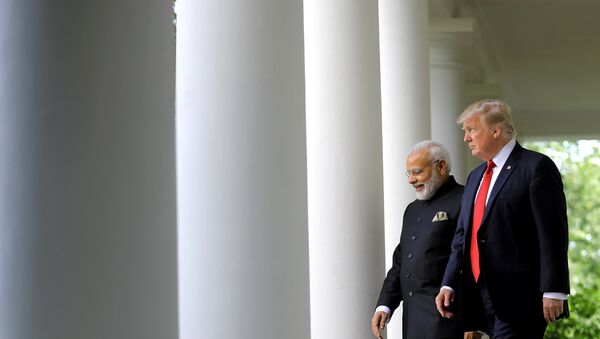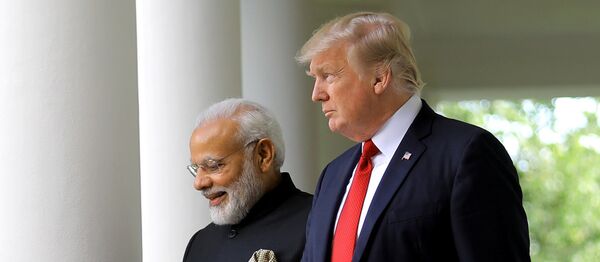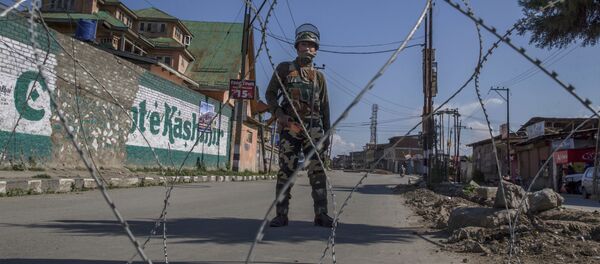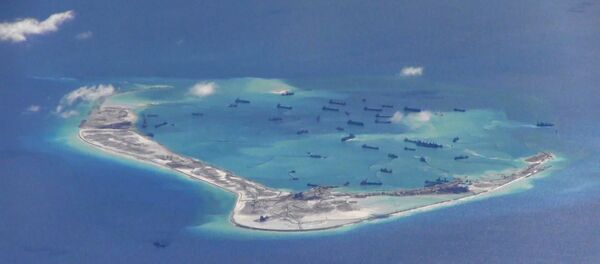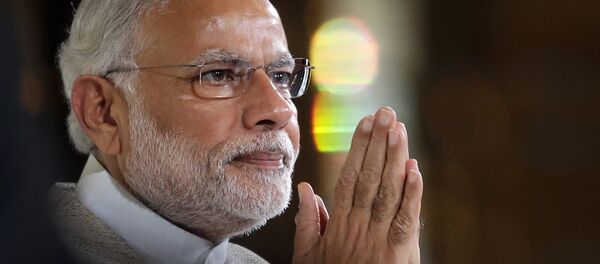Modi also said India needed to ensure peace and stability in Afghanistan and that he was determined to maintain close consultation and communication with the US government on the issue.
CONTAINING CHINA
US presidents have courted India as a continental Asian counterpart to China since President Bill Clinton’s state visit in 2000. This policy gained momentum under President George W. Bush when Secretary of Defense Donald Rumsfeld and his deputy Paul Wolfowitz sought closer military ties with India.
President Barack Obama promised to back India’s bid for a permanent seat with veto power on the UN Security Council. However this was never followed up by any real diplomatic action by Washington.
Before Modi’s visit this week, the Atlantic Council think tank published a study arguing that enlisting India as a fully ally was crucial to US efforts to contain China in Asia.
"For Washington, India is the biggest piece in its strategy to ‘contain’ the expansion of Chinese influence in Asia," University of Pittsburgh Professor of International Affairs Michael Brenner said on Wednesday.
In their talks on Monday Trump and Modi agreed to increase bilateral intelligence sharing.
Less than day before Modi arrived in Washington, the Department of State announced sanctions on Syed Salahuddin, head of the Hizbul Mujahideen guerrilla group that fights India in Kashmir and that is based in Pakistan. India’s Ministry of External Affairs welcomed the US action.
Brenner said the increased cooperation had to be seen in the strategic context of both Washington and Delhi’s concern about the growing influence of China.
Brenner said the United States saw India as the one nation in Asia with the size and potential resources to compete with China for regional and continental leadership.
India’s size, economic military potential, and rivalry with China make it a unique partner, Brenner added.
India welcomed the US perspective as giving it Washington’s support in both the economic and military spheres, Brenner explained
"From New Delhi's perspective, embrace of the United States combines the benefits of a tacit alliance with still the world's strongest power and an array of small advantages in the commercial and financial realm," Brenner noted.
The strategic forces drawing In the United States and India together as a shared counter-balance to China were unlikely to change in the foreseeable future, Brenner added.
"These structural factors will remain a constant in the relationship between the two countries," he concluded.
COUNTERTERRORISM EFFORTS
The Trump administration beyond using India as a counterforce to China may see long-term rivalry with Beijing and as a key partner in countering terrorism in Central and South Asia.
"The United States and India should increase cooperation in intelligence gathering, especially on radical Islamists," Independent Institute Center for Peace and Freedom Director Ivan Eland told Sputnik.
Eland said increased cooperation could pave the way for a greater Indian role in Afghanistan, which New Delhi has long craved. This would make it easier for the US government to wind down its own military and or financial commitments to propping up the Afghan government, he explained.
"The United States should allow India to take over supporting the Afghan government economically and militarily," Eland said.
Trump has recently been moving in the direction of a greater US military involvement in Afghanistan, not less. He took the almost unprecedented step of announcing he was letting military commanders decide on the troop levels they needed in Afghanistan.
Trump has delegated the decision to set US troop levels in Afghanistan to his military commanders and Secretary of Defense James Mattis is reported to be studying different ways to revise the US and allied strategy in the country where Taliban influence has been rising.
This move was widely taken as preparing the way for a rapid increase in US ground forces committed to propping up the Kabul government in the near future.
"Afghanistan is more strategic for India than it is for the United States, especially," he said.
A US withdrawal would also be timely because al-Qaeda power and influence was far less than it had been some years ago, Eland remarked.
"Al-Qaeda is a spent force in that region, The United States could then withdraw all its forces and end the longest war in US history," he said.
However, the main obstacle to this development remained US support for Pakistan, which has aided groups such as the Taliban and even al-Qaeda, Eland acknowledged.
